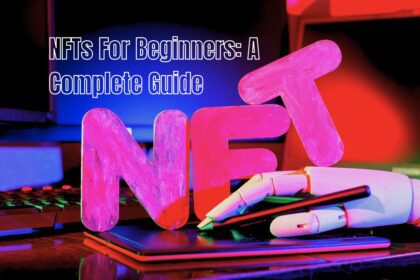Being able to manage your money efficiently is a vital capability that has a significant impact on your financial wellbeing. For beginners, developing good money management habits early on is essential for long-term financial success. This article will explore ten valuable tips to help beginners navigate the path to financial stability and independence.
Introduction
Money management plays a vital role in our lives, and its significance becomes even more pronounced when starting our financial journey. By understanding and implementing effective money management strategies, beginners can lay a strong foundation for their financial future.
Set Financial Goals
One of the first steps in managing money effectively is to set clear financial goals. Begin by defining short-term and long-term goals, such as saving for a vacation or planning for retirement. Having specific goals in mind provides direction and motivation, making prioritizing and allocating resources easier. Additionally, creating a budget that aligns with these goals helps track progress and stay on track.
Track and Analyze Expenses
Tracking expenses is crucial for understanding spending habits and identifying areas for adjustments. By diligently recording and categorizing expenses, beginners can gain valuable insights into their financial patterns and make informed decisions about their spending. This step allows for better control over expenditures and helps identify unnecessary expenses that can be minimized or eliminated.
Create an Emergency Fund
Building an emergency fund is a fundamental aspect of money management. An emergency fund is a financial safety net that provides peace of mind and protection against unexpected expenses or income disruptions. Aim to save three to six months’ living expenses in an easily accessible account. Consider setting up automatic savings transfers to build the fund over time gradually.
Reduce Debt
Managing debt is an integral part of effective money management. Begin by evaluating all outstanding debts and prioritizing high-interest ones. Implement strategies such as the snowball or avalanche method to pay off debts systematically. Minimizing debt improves financial health and frees up resources for saving and investing in the future.
Save for Retirement
Planning for retirement is essential, regardless of one’s age. Start saving for retirement as early as possible to take advantage of compounding interest and maximize your savings. Understand the different retirement accounts available, such as 401(k) plans or Individual Retirement Accounts (IRAs), and contribute regularly to them. Consult with a financial advisor to determine the best retirement savings strategies based on your goals and risk tolerance.
Invest Wisely
The Investing is a great way to increase your money over the long run. Educate yourself about the basics of investing, including different asset classes and investment vehicles. Diversify your investments to spread risk and optimize returns. Consider investing in low-cost indexes or exchange-traded funds (ETFs) that provide broad market exposure. Also regularly reviewing and adjusting your portfolio of investments to make sure it’s in line with your financial objectives.
Review Insurance Coverage
Insurance is a vital component of financial planning. Regularly review your insurance policies to ensure adequate coverage for your needs. Evaluate different types of insurance, including health, life, and property insurance, and understand the associated costs and benefits. Adjust as necessary, considering factors such as family circumstances or asset changes.
Automate Finances
Automating your finances can ease the management of your money and help to stay on track. Set up automatic bill payments to avoid late fees and streamline your budgeting process. Additionally, automate your savings by setting up automatic transfers from your checking account to your savings or investment accounts. This ensures consistent savings and reduces the temptation to spend impulsively.
Educate Yourself
Financial literacy is essential to making educated financial choices. Learn for yourself about topics related to personal finance. Read books, attend seminars, and utilize online resources to expand your financial knowledge. Consider enrolling in courses or workshops that cover topics such as budgeting, investing, and retirement planning. The more you learn, the better you’ll be able to manage your money effectively.
Seek Professional Advice
While it’s important to educate yourself, seeking professional advice can provide valuable insights and guidance. Consider consulting with a financial advisor who can assess your financial situation, help you set realistic goals, and develop a personalized plan. Choose a reputable advisor who has your best interests at heart and understands your unique circumstances and objectives.
FAQs (Frequently Asked Questions)
-
What are money management tips?
Money management tips are strategies and techniques that help individuals effectively handle their finances and make smart decisions about saving, spending, budgeting, and investing.
-
Why are money management tips important for beginners?
Money management tips are crucial for beginners as they provide guidance on how to establish good financial habits, avoid debt, build savings, and make informed financial decisions from the start.
-
What are the top 10 money management tips for beginners?
The top 10 money management tips for beginners include creating a budget, tracking expenses, saving regularly, setting financial goals, paying off high-interest debt, avoiding impulsive purchases, building an emergency fund, investing wisely, seeking financial education, and seeking professional advice when needed.
-
How can I create a budget as a beginner?
Creating a budget as a beginner involves tracking your income and expenses, categorizing your expenses, setting realistic spending limits, and monitoring your budget regularly to ensure you stay on track.
-
Are these money management tips applicable to everyone?
Yes, the basic principles of money management apply to individuals of all financial backgrounds and ages. These tips provide a solid foundation for managing finances effectively and can be adapted to personal circumstances and goals.
Conclusion
Mastering money management is vital for beginners embarking on their financial journey. By setting clear goals, tracking expenses, creating an emergency fund, reducing debt, saving for retirement, investing wisely, reviewing insurance coverage, automating finances, educating oneself, and seeking professional advice, beginners can build a solid foundation for financial success. Effective money management requires discipline, perseverance, and continuous evaluation and adjustment. Start implementing these tips today to secure a brighter financial future.













